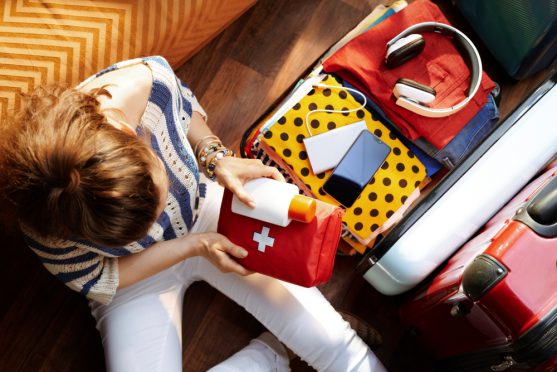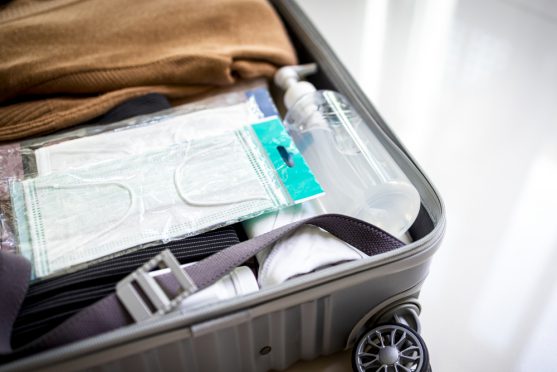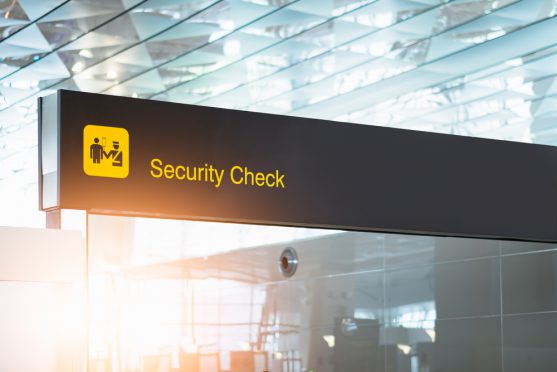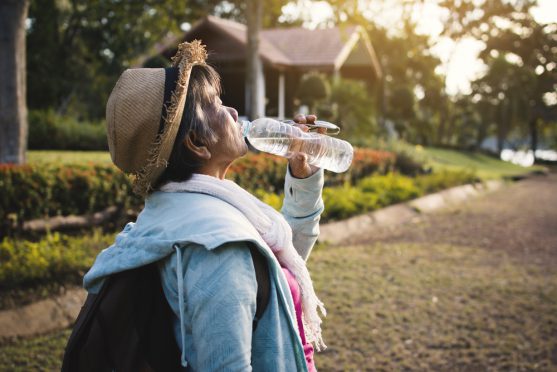Did you know that going on a long-distance trip can be safe and comfortable even if you have cancer? It’s true. All you need to do is prepare well ahead of your travel date and take enough precautions about your health.
In this blog we tell you how to plan your safe travel, keeping in mind the present pandemic.
-
Plan much ahead of the travel date
You probably have a wedding in the family that you cannot miss, or, you have been longing for a holiday to unwind. Maybe you need to travel for treatment. Whatever the reason, you still need to plan well ahead of the travel date.
And it’s not just about booking tickets and packing your bags. In these times, when the pandemic is still around, it’s in your health’s interest to take maximum care and be cautious, weeks in advance.

During certain cancer treatments, such as high dose chemotherapy for blood cancers, bone marrow transplant, etc, travel should be strictly avoided as you are at higher risk of picking up an infection.
- First, inform your doctor about your trip. If you have just had a surgery, your doctor will advise you to avoid travel, especially by air, for at least two weeks. This is to prevent any kind of infection that you might be vulnerable to during the trip. Fix the date of travel and book your tickets, only after you consult your doctor.
- It is also important to inform your doctor about the country you are visiting and where you will be staying. This is because a few underdeveloped countries may not have the necessary healthcare facilities you could require in an emergency. Your doctor is the best person to advise you about the precautions to take in such situations and may even share the contact details of a doctor or cancer care centre at your destination, should you need the services. You might be required to take certain vaccinations and long-term antibiotic therapy in advance, before you embark on your trip. Since certain live vaccines are not recommended for cancer patients, your doctor will advise a suitable alternative.
- Your doctor may advise you to undergo a few tests before you travel. This is to confirm that you are healthy enough to undertake the journey. If you are taking chemotherapy, you might feel weak and have side effects. You should be strong and healthy at least six weeks before your travel date and the tests will determine if you are fit to undertake the journey.
- It is safer to buy travel health insurance when you travel abroad. Check with your health insurance company if your Indian policy is eligible in your country of visit.
- Most importantly, travel with a companion – either family or friend – who understands your condition well. If you’re travelling with a group of strangers, inform your tourist guide or the travel company about your health requirements so your trip is not exhausting for you. Most professional travel firms categorize travellers with special needs and offer a separate menu too.
What to pack
Now that you’ve consulted your doctor and booked tickets, here’s what you should include in your baggage:
- Your medications are always a priority. Pack the ones you’re presently taking as well as an extra stock to last you through your entire trip and after you’re back. This way you will not need to run out for some if your stocks run out. Pack them in their original containers and mark them according to the dates and time that you need to consume them. This will be handy during your busy itinerary. You could consider setting a reminder on your phone so that you do not miss taking your medicines at the right time.

- Along with your medications, carry your doctor’s prescriptions. In case you have a sudden change in your travel schedule due to inclement weather, etc, and need to extend your stay, you will need the prescription to buy medicines if you run out of the supply.
- Make a list of allergies or emergency health reactions you could face during your travel. This will help you get crucial emergency treatment at the right time. Your travel companion or guide too should carry a copy of your prescriptions and list of your special requirements during the trip.
- Take copies of your medical and test reports especially if you are travelling to avail treatment for the cancer. Also carry a letter from your treating oncologist about your condition, treatment plan and the reason for carrying typical medications. This is because certain medications, even the over-the-counter ones, are banned in some countries. For example, codeine which is used in easing pain from cancer is illegal in Greece and Hong Kong. A letter from your oncologist explaining the need for you to carry medications containing codeine can help you sail through the Customs and Security Desk on your arrival in these countries.
- Most importantly, remember to pack an abundant supply of your personal protective equipment such as masks, face shields, gloves and sanitisers. You will need more of these if you’re travelling in the pandemic. Choose the disposable variety because you might not have the time to wash or sanitise them.

What to wear
Wear comfortable clothes. Ideally, loose cotton clothing in hot summer months, and warm woollies in winter should be in your baggage. If you are on chemotherapy, you could be sensitive to harsh sunlight. Wear a hat or cap to protect yourself.
At the Airport Security

Informing the Transport Security Administration (TSA) about your condition before you enter the security check area can get you a private pat-down away from the crowd. If you wear:
- a head scarf or a typical head cover because you are undergoing chemotherapy, you might need to have it screened in private. Most airlines allow the head scarf.
- a catheter or port for medications, inform the TSA in advance especially if it is likely to cause pain or uneasiness during a physical search.
- a breast prosthesis after a breast cancer surgery, you need not remove it before passing through the security frame. Only, inform the TSA. If you are carrying the prosthesis in your bag, it will have to go through the screening.
- an ostomy bag or pouch, you usually do not require to empty or reveal the pouch during the security screening. But, it is wise to inform the TSA before going through the security frame.
During your journey
If you are under chemotherapy, your immunity could be a little weaker than usual. It is always wise to be prepared for any typical health issues during your travel. These can be:
- Exposure to viral infections in a closed space such as an aircraft, air-conditioned car, bus or train: Since you are undergoing cancer treatment, you are also susceptible to catching infections faster than others. Your doctor will advise you on wearing a mask or face shield and gloves.
- Risk of blood clots (deep vein thrombosis or DVT) from sitting too long in one position: This can happen on long journeys by road or air. If you’re taking the road, stop every hour to step out and stretch your legs. On the flight, choose an aisle seat so you can walk along it to increase blood circulation. Consult your doctor if you can wear compression stockings.
- Breathing issues due to drop in ambient air pressure in the aircraft: In cancer patients with compromised lung function, this can be potentially risky. You will require supplementary oxygen and the airline staff should be informed in advance to be ready to supply it to you.
- Risk of food poisoning or diarrhea: This can happen with your choice of uncooked food and water. It is advisable to drink bottled water and eat fresh and hot, hygienically-cooked food as much as possible. If you have access to home-cooked food, it’s the best option. Avoid alcohol and smoking at all times.

Where you will stay is of utmost importance. Whether it’s a hotel or a home-stay, ensure they have emergency facilities in-house or a doctor on call. Not that you’ll require it, but it’s better to be prepared beforehand.
As you embark on your dream holiday, or, a trip that will give you hope for the future, remember to take all the care and precautions. As the saying goes, ‘happiness is the journey, not the destination. Enjoy the ride!’

